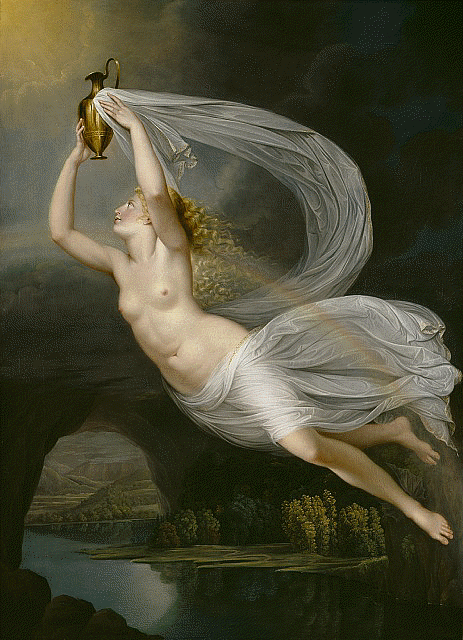The Gardens of Iris: Litha Magick
“Where does the rainbow end, in your soul or on the horizon?”
If Winter's cloak is woven from shadows and night, then Midsummer's is adorned with fire, ferns, and rainbow-colored lace. Also known as Litha, the Summer Solstice arrives when the sun reaches its zenith and enters Cancer (around June 20th in the Northern Hemisphere). Traditionally, June is a busy month for land tenders and lovers, but the Summer Solstice invites people to pause.
Our ancestors believed that during the Summer Solstice, the sun stood still. And when time stands still, pleasure rises to the surface of our sun-kissed skin.
Perhaps this is the reason summer is the most popular season for weddings. In days past, people planned handfastings for Midsummer nights. While newlyweds made vows, the bees courted the flowers, and the gardeners romanced the earth. Even today, summer is a season of romance.
This week, held by your summer intentions, join us as we summon all that is growing. We'll decorate our altar with symbols of joy, increase, and creativity. We'll remove our faded springtime frocks and choose a blooming, red robe. We'll wave 'hello' to Apollo, the golden god in his equally radiant chariot. His daytime journey on hiatus, Apollo responds by reaching down to straighten our collar, motioning to the hem framing our face. When we discover the stories in the stitching, shimmering and impossibly intricate, he beams.
“Fingerprints left by the goddess Iris,” he'll say. “She's waiting for you in the garden.”
The gardens of Iris are not like Aphrodite's. There are no roses or thorns, and instead, rows of delicate blooms line our path. Iris's flowers appear both wilted and reaching, their petals stained in every shade of red, pink, purple, yellow, orange, white, blue, and black.
According to Floriography, Irises contain valor, wisdom, and faith. Planting them around your home is a spell for hope – much like spotting a rainbow amidst stormy skies.
Like our god of the sun, Apollo, Iris and her flowers are harbingers of summer. In Greek mythology, Iris is a goddess of rainbows and the daughter of the sea spirit Thaumus and the Oceanid Electra. Iris was born with salt in her veins and can be found near the water's edge, often hiding behind a veil of misty clouds. Similar to Hermes, Iris is a psychopomp. Her portal between worlds is a rainbow bridge, but unlike Hermes, Iris is no trickster. She is a spirit of Justice, loyal to Hera, who serves as the queen's attendant and messenger. In many stories, Iris is the voice that delivers Hera's spells.
The poets tell us that Iris is a winged woman who wears colorful clothing. Sometimes, she appears with a multi-colored robe, casting rainbows from her pockets. Other times, she shows up sporting a short tunic and carrying a caduceus – the staff of the messenger. In place of the caduceus, Iris carries a pitcher.
When there are parties atop Mt. Olympus, Iris serves nectar to the gods from this vessel. If it hasn't rained for weeks, the goddess (who was nicknamed “Storm-Footed”) might summon storms to soften the earth.
Although Iris was loyal to Hera, she also did Zeus's bidding. In one mythical tale, Zeus commanded Iris to collect water from the River Styx. When she returned with her pitcher full, Zeus told his fellow Olympians to swear an oath of loyalty upon this sacred water. Then, he commanded them to drink it. If the gods were honest with Zeus about their intentions, they'd be blessed. However, liars would be punished, their dishonesty poisoning the water and rendering them voiceless or unconscious for an entire year. In this story, Iris is a herald of truth. She gives voice to the soul, so long as it's sincere.
Iris carrying the water of the River Styx to Olympus, Guy Head, 18th century
During this Summer Solstice, when the sun stands still, Iris invites us to take inventory of our truths, try on her fiery robe, and drink from her waters. At Litha, Iris urges us to give a name to this season, a season she shares with Apollo and the bees. Like other sea-born goddesses, Iris responds to our desire to wander, to wonder. She is not one-dimensional, but a prism of colorful possibility. Iris lives in the essential in-between, romancing us with wild hope, knowing that justice always blooms in her rainbow gardens.










